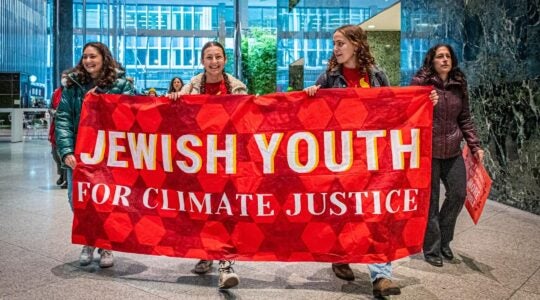When missiles and bombs are flying, while terrorists kidnap and murder, when civilians are caught in the crossfire, and when diaspora Jews and Palestinians are vilified and attacked, there is no good news for anyone. But planning beyond the horrors of the past weeks, as we must, careful scanning of changes in the Arab and Muslim worlds suggest new opportunities for Israelis to live at peace with Palestinians and other neighbors.
The unanticipated “Arab Spring” is generally deemed a failure in fostering the liberal, pluralistic democracy Americans believe we enjoy and can foster elsewhere. But the Arab protest movement lifted a veil on dynamic people and processes. Had our intelligence agencies and policy makers picked up the life-affirming counterpoints to the nihilistic vengeance expressed on 9/11 and other terrorist acts, we might have found better strategies than wasting more than a decade on futile wars.
A much larger protest movement is now underway among Muslims and Arabs that cannot be ignored. Strangely enough, it was given passionate expression for Israelis by the late Prime Minister Yitzchak Rabin, a late convert to peacemaking. In his last two years before violence felled him in November 1995, he loudly proclaimed in the Knesset and on the White House Lawn, “Enough of blood and tears. Enough.” In that one word, “Enough,” he summarized his opposition to violence and called for compromise.
On the faces of desperate citizens escaping Syria and Iraq and many other Muslim countries, images that fill our media daily, we see and hear the same word: enough: Enough martyrs of any type; enough loss of life, health and property in the name of religious or secular fantasies of worldly or spiritual gains; enough intractable sectarian warfare that brutalizes all sides; enough debasing of Islam over Sunni-Shia wars that make a mockery of the notion of an umma, or religious unity among Muslims; enough blaming Israel and the U.S. for debasing Islam, a religion that has made profound contributions to civilization.
But change may be in the air in the Muslim world. Changing attitudes towards terrorism of the Hamas/Muslim Brotherhood/al-Qaeda styles were most publicly manifest in the past days in shifting coalitions. Gulf State publications have been publishing articles by prominent citizens who were criticizing the Palestinians for wasting their time and resources trying to topple Israel, and damning Hamas. Who could believe that Israel would be on the same side of the table as Saudi Arabia and other enemies of the Jews?
Last month, shortly before the current round of Israeli Jewish-Palestinian violence, the Pew Research Global Attitudes Project announced findings of a significant increase in rejection of terrorism since 2013 among Arabs of the Middle East, with more than half of those polled approaching the 90 percent level on a scale of rejection of terror. This is welcome news, indeed. Yet, there hasn’t been much media coverage of it, either in Israel or in the diaspora.
While a two-state solution may not come about in the near future,
it would certainly help if those who politically and empathetically are best able to hear these anguished cries of “enough” would lend support rather than voice blame and vilification.
How do we reach those Muslims who are crying “enough?” We have abundant experience in community relations. Why are we not sending more delegations to Muslim countries, refugee camps or to places where there are powerful movements for moderation, such as Indonesia or to the Muslims in India. Or to youth and professionals who are engaging in discourse and providing medical services and business opportunities? How did Israel succeed in establishing diplomatic relations with China in the early 1990s? It was because of the educational and business ties that enabled Chinese policy makers to sort out myth from fact about Jews. When the Gulf States pay for “American-style” education, why are we not utilizing these open doors to reach rising Muslim leaders, including Palestinians, providing nuanced knowledge of the Jews?
Why are we in the Jewish community wasting our time in battling the Presbyterians and in hasbarah, or public relations, for Israel, which is simply preaching to the converted? The global support that Palestinians, with minimal advocacy and public relations support of their own, inevitably muster increasingly endangers Israeli and diaspora Jews alike. We “delegitimate” ourselves as a state and as a people by refusing to spot opportunity. It is time for us, as one people, Jews of Israel and the diaspora, to hear and act on the good news, while keeping ourselves well prepared to respond to the real threats.
Hillel Levine, professor of sociology and religion at Boston University, is president of the International Center for Conciliation, which fosters dignity and cooperation in conflict-ridden communities through reconciliation and community preparedness.
The New York Jewish Week brings you the stories behind the headlines, keeping you connected to Jewish life in New York. Help sustain the reporting you trust by donating today.




